The Apple TV+ series Pachinko tells the story of a Korean family that moves between Korea, Japan, and America over the course of the 20th century. Set across two different time periods, the first season follows Sunja from a small Korean island in 1915 through the 1980s in Japan. Through its characters and their experiences, the show examines how historic events shaped cultural tensions for Korean immigrants living in Japan.
Now in its second season, Pachinko continues to move back and forth between timeframes. In the 1940s, we see Sunja and her family try to survive the perilous final years of World War II in Japan. Meanwhile, in 1980s Tokyo, Sunja’s grandson Solomon contends with a corporate world where his Korean heritage holds him back.
Through characters like Sunja and Solomon, the impacts of Japan’s occupation of Korea echo across generations. Even as conditions change over decades, the trauma of the past casts a long shadow. By focusing on one family, the show offers thoughtful insights into how history shapes cultural identities and misunderstandings between communities. Its thoughtful storytelling explores resilience in the face of oppression with empathy and care.
Pachinko’s characters feel genuine through layered performances that bring the novel they’re based on to life. By juxtaposing two eras, the show underscores how much changed for Koreans in Japan while remnants of the past still lingered. Its sweeping scope examines how families cope as wider events alter their worlds in profound ways. Over eight binge-worthy episodes, Pachinko delivers a moving family drama that honors hardships while finding fleeting joys of belonging when divided by history.
Korean Characters Coming of Age Through Decades
One aspect that makes Pachinko truly shine is its deep exploration of characters. Chief among them is Sunja, who remains captivating, whether played by Kim Min-ha in the 1940s or veteran actress Youn Yuh-jung in the 1980s. Both convey her resilience through even the hardest times, from keeping her family fed amid WWII shortages to adjusting to modernity’s changes decades later.
A contrast to Sunja is former lover Koh Hansu. Played with commanding charm by Lee Min-ho, he helps the family but is driven by ruthless criminal ambition to secure his illegitimate son Noa’s future. As possessive as he is of Noa, he displays genuine care for Sunja at times too.
Noa’s journey hangs heavy over the season. Raised lovingly yet unaware of his lineage, tragic circumstances arise, ensuring that by the 1980s he is shunned. The young actors portraying him in different eras, like Tae Ju Kang as a student, imbue Noa with intelligence, seeking his place in an unwelcoming world.
Grandson Solomon, portrayed brilliantly by Jin Ha, feels pressure to succeed while facing prejudice and silencing his Koreanness. Like other characters, he contends with how past shapes present, bringing bottled-up trauma seething to the surface.
Performances across eras feel unified through nuanced emotions, which convey how history impacts character arcs differently depending on when they come of age. Supporting players, from Eun-chae Jung as resilient sister-in-law Kyunghee to Sungkyu Kim as an employee torn between yakuza duty and forbidden love, receive moments cementing them as full people.
Through both lead and supporting roles, Pachinko exemplifies how relatable characters can carry expansive historical fiction that feels authentic rather than detached. Events unfold through how individuals meet, defy, or fall victim to circumstances, cultivating a deep understanding of the hardships faced while celebrating human adaptability against the odds.
Korean History Through Human Stories
Pachinko explores some huge chapters of history by focusing on intimate human experiences. The show portrays consequential events from Korea’s Japanese occupation onwards through the grounded lens of one family’s trials and triumphs.
Major events are depicted, like the brutal years of Japanese rule over Korea in the early 20th century. Through the novel’s backdrop spanning a century, viewers witness how this forever altered the country’s relationship with its neighbor. The series doesn’t shy away from showing the turmoil’s lasting wounds, from separated families to scars of cultural suppression that endure past the period.
Viewers also bear witness to history through the Baek family’s struggles in World War II’s closing days. Whether it’s navigating life in the Japanese countryside or the mounting dread as atomic bombs near, the human toll becomes terribly real as their reality mirrors chilling real-world occurrences. Harrowing sequences recreate bombings with unflinching yet empathetic integrity.
Yet Pachinko balances heavy history with welcome nuance too. Subtleties depict how local complexities defied simplistic characterizations of nations at war. Grace notes that inter-communal friendships acknowledge conflict’s intimate ironies amid division from above. The series proves history can acknowledge both societal currents and humanity’s ability to find common ground even in darkness.
Prejudices also face sensitive treatment. The slow revealing of prejudices’ roots offers understanding without excuse. Storylines likewise attest that discrimination persists where formal oppression has passed, from ingrained slights to structural barriers generations later. The show illuminates history’s rippling effects in a spirit of thoughtful compassion.
Pachinko’s attention to cultural accuracy lends weight to its vision. Settings feel fully lived-in rather than mere backdrops. Production qualities transport viewers across eras in a way that makes heavy themes profoundly touching instead of theoretical. The end result finds wisdom by affirming that humanity transcends even history’s darkest shadows.
Korean History Brought to Life Through Visual Storytelling
One thing that really struck me about Pachinko is the care given to visual elements like directing, cinematography, and production design. These technical aspects work hand in hand to immerse the viewer in the world of the show.
Directors like Leanne Welham, Arvin Chen, and Sang-il Lee do a beautiful job crafting emotionally powerful sequences. Scenes depicting difficult periods like WWII and its aftermath are handled with depth and empathy. Transitions between eras also flow seamlessly, from matching shots to recurring motifs that bind the story across generations.
Cinematography shines, whether lighting cozy interiors or gritty exteriors. One scene fading between cheerful family meals and a bombed city serves both characters perfectly, despite gaps in time and place. Grainy newsreel-style shots envelop the audience in Nagasaki’s final days too.
The set design feels authentic rather than stagey. From Korean villages to Tokyo skylines, each setting transports you fully to its era. Costumes and props inject tangible reality, down to ragged-collar styles or packed suitcases. Immersive detail anchors big historical beats on personal levels.
This marriage of technical mastery and intimate human focus is no accident. Clearly thoughtful attention went into visualizing this sweeping fictionalized history. Complex issues become profoundly moving as viewers live the experiences, not just observe them.
Some shows get bogged down in bringing novels to television, yet Pachinko translates its source seamlessly. The result gives weight to difficult topics by prioritizing emotional truth over theoretical discussions. Its images linger with far more impact than any dry recounting of facts ever could on its own.
So while not all may have heard of this series yet, Pachinko deserves praise for visual storytelling done right—portraying humanity at its best even in history’s darkest shadows.
Finding Your Place Across Eras
Some prominent themes emerge in Pachinko’s thoughtful exploration of history through a Korean family. Core among them is resilience in the face of immense challenges.
From Sunja working tirelessly to feed her family during WWII’s devastation to Solomon pushing back against prejudices to succeed in 1980s Tokyo, the characters demonstrate persistence that echoes through generations. Their journeys also depict resilience taking diverse forms, whether remaining hopeful, leaning on community, or defiantly carving out joy.
Closely tied is the theme of cultural identity. Figures like Koh Hansu and Noa struggle with identities challenged by an unwelcoming world, while Solomon confronts betraying his heritage. Their stories underscore how notions of “self” evolve in response to circumstances outside one’s control, for better or worse.
Perhaps the series’ most poignant thread is intergenerational trauma. Scenes imply traumas festering in Hanusu long before we meet him, and later generations like Noa and Solomon carry pressures as they try shaping futures in trauma’s long shadows.
Pachinko also explores how similar events impact periods differently. Sunja navigates a brutal occupation where her grandson faces prejudices that, while hurtful, rarely turn violent. Their contrasting views provide fuller pictures of lived experiences divided across eras.
These ideas emerge organically from exploring hardships both universal and unique to Korea-Japan history. Characters commented thoughtfully on issues from different vantage points, adding layers to appreciate fuller truths.
In the end, no matter how circumstances alter, the show suggests that the ability to find belonging and thrive defines humanity above all. Its compassionate examination of themes through multifaceted characters and periods teaches empathy for others’ journeys, wherever or whenever they are walking.
Weaving Tales
In its first season, Pachinko intricately weaves the story of a Korean family between two time periods. Starting in the early 20th century, it followed young Sunja navigating tumultuous change. Meanwhile, scenes from 1980s Japan saw her grandson Solomon grappling with the past’s modern echoes.
Season 2 continues deftly shuttling between eras. We witness Sunja’s courage in helping loved ones survive WWII’s brutal end. At the same time, Solomon tries rebuilding his career, shadowed by prejudice.
Parallels strengthen across installments. Transitions flowing between matching moments underscore lifetimes’ connections. Subtle echoes of the past in present interactions add poignancy.
This season deepens characterization. Sunja and Solomon feel complete through flaws and triumphs across decades. Supporting figures like Noa and Koh Hansu emerge as multifaceted through new shades.
While sticking closely to the novel’s framework, Season 2 diverts occasionally to flesh out backstories like Hansu’s youth. Though they risked distracting from the core, these proved moving in establishing context for actions.
At times, historic upheavals overshadow the intimate family drama driving Season 1’s success. A tighter focus on personal journeys amid calamity could strengthen weaving personal and political narratives.
Yet Season 2 amplifies thoughtful engagement with pressing themes. It honors resilience against injustice through the ordinary yet radical act of living fully despite adversity. By prioritizing emotional truth over lecturing, the show leads viewers to their own insightful conclusions.
In the end, Pachinko’s heart remains family, finding purpose in each moment despite uncertainties about what’s to come. Both seasons skillfully bring to life this profound yet accessible message through beauty in the imperfection of the human experience.
Finding Truth and Empathy
Pachinko has proven itself to be one of television’s most poignant historical dramas in recent memory. By chronicling one Korean family navigating momentous change, it offers thoughtful commentary on history’s influence with stirring emotional resonance.
Over two seasons, the show has followed Sunja’s enduring spirit through personal and political upheavals, shifting the landscape around her. Viewers share her joys, losses, and everything in between as generations discover their place in an evolving world marked by conflict before them.
Through the Baek clan, Pachinko unpacks how sustained adversity leaves reverberations that surface when least expected, for better or worse. But equally, it lauds resilience demonstrated not through resistance alone but through appreciation for life’s beauty, however fleeting.
By juxtaposing intricately drawn characters against shifting backdrops, Pachinko cultivates empathy. It acknowledges both history’s gravity and humanity’s ability to overcome even its darkest legacies through interconnectedness. Without absolving injustice, the show celebrates community, nourishing its members despite the divisions above.
For anyone wishing to understand others and learn from differences instead of fearing them, Pachinko offers moving lessons. Its blended intimacy and epic scale craft an intimate yet expansive story touching on truths transcending any single perspective. For those open to profound insights softly shared, this series presents a risk undoubtedly worth taking.
The Review
Pachinko Season 2
Pachinko is a resoundingly moving portrayal of a family navigating change against momentous historical upheavals. With intimacy and epic scope balanced exquisitely through characterization and visual storytelling, it cultivates empathy for diverse lived experiences. Experience matters less when humanity's capacity for resilience, community, and appreciation of life's simpler moments triumphs over even its darkest legacies.
PROS
- Complex, layered characterization explored across generations
- Evocative visual storytelling transports viewers to different eras
- Sensitive handling of difficult historical subjects and social issues
- Empathy is cultivated by focusing on characters' humanity above events
- Skilled adaptation balances fidelity to source material and TV format
CONS
- Some storylines in Season 2 are less compelling individually
- Episodes occasionally end abruptly instead of reaching a reaching a conclusion
- Historical drama occasionally overshadows intimate family drama









































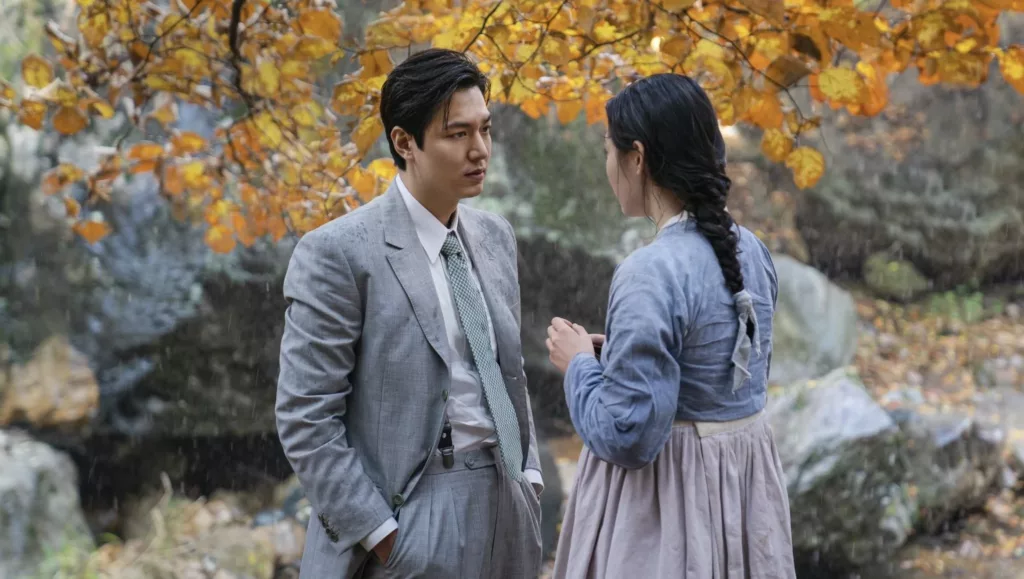
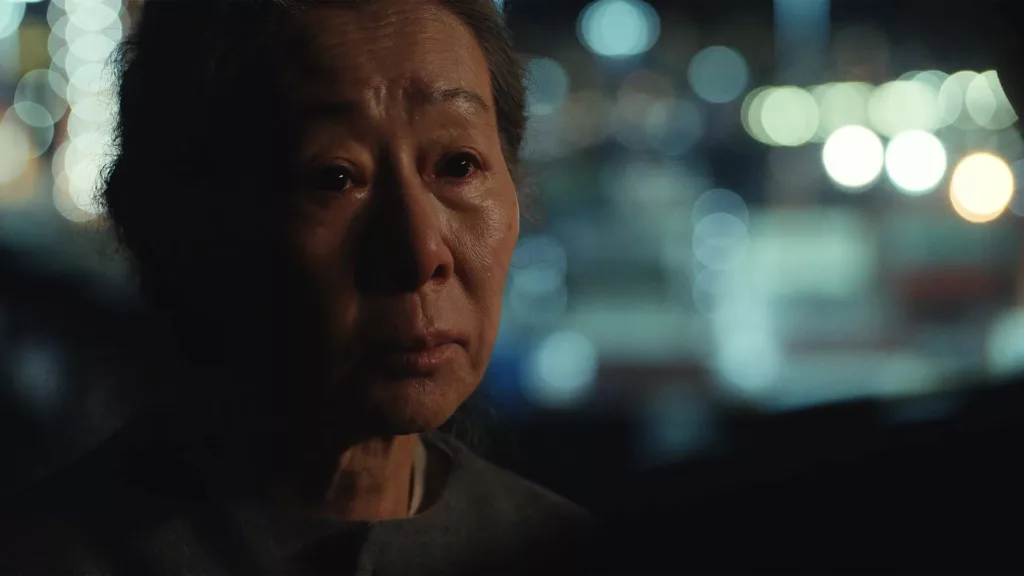
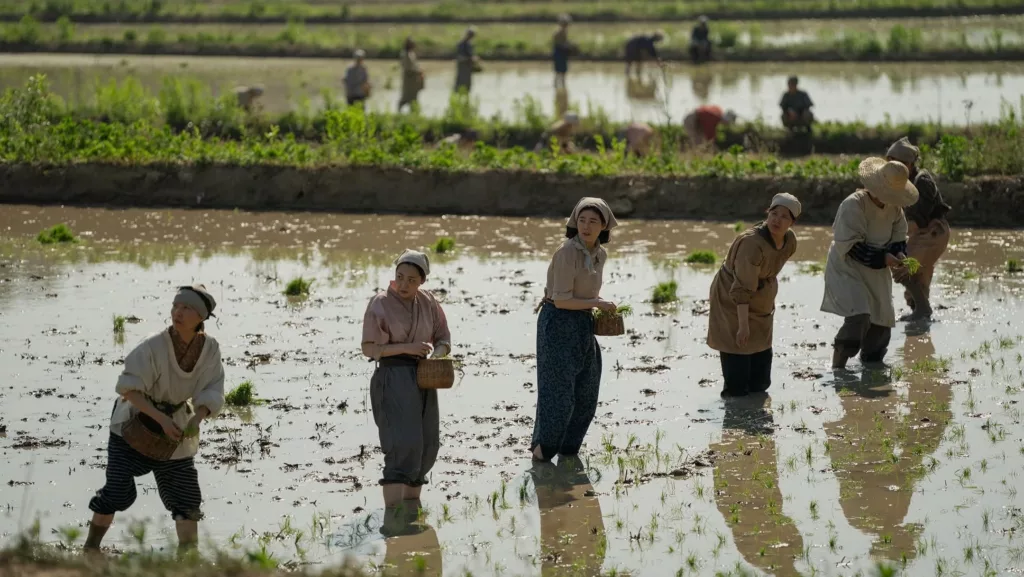
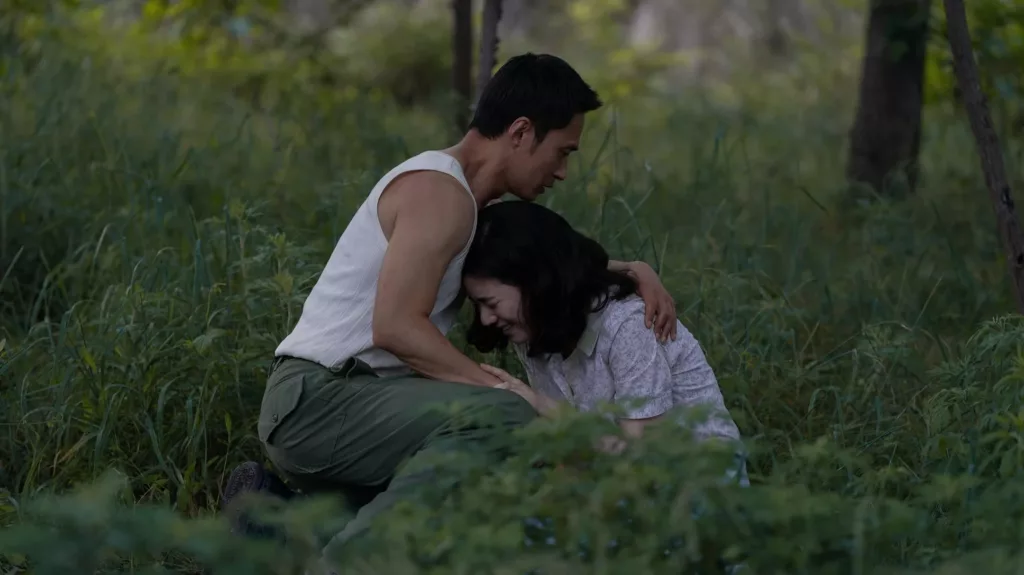
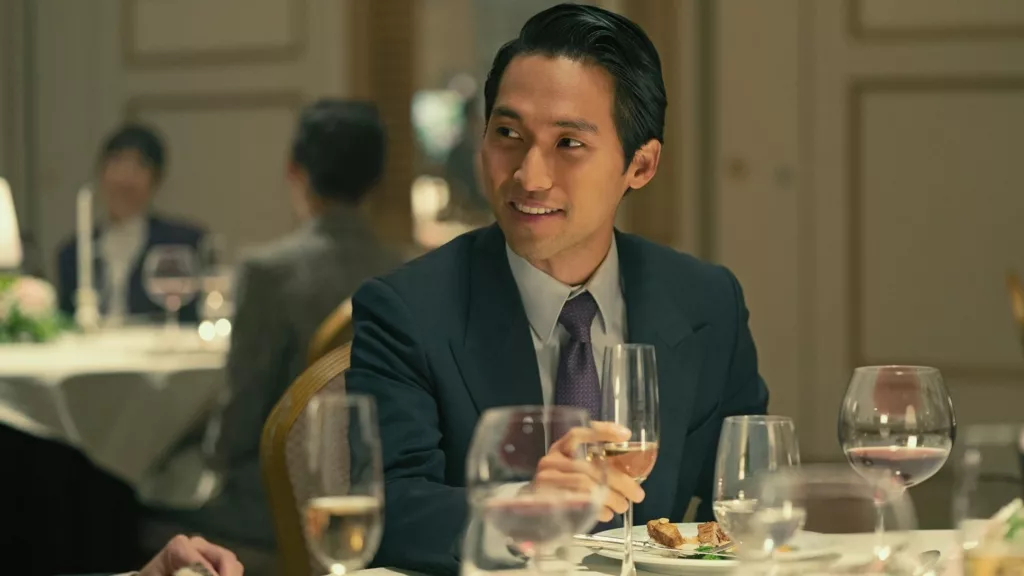








Discussion about this post